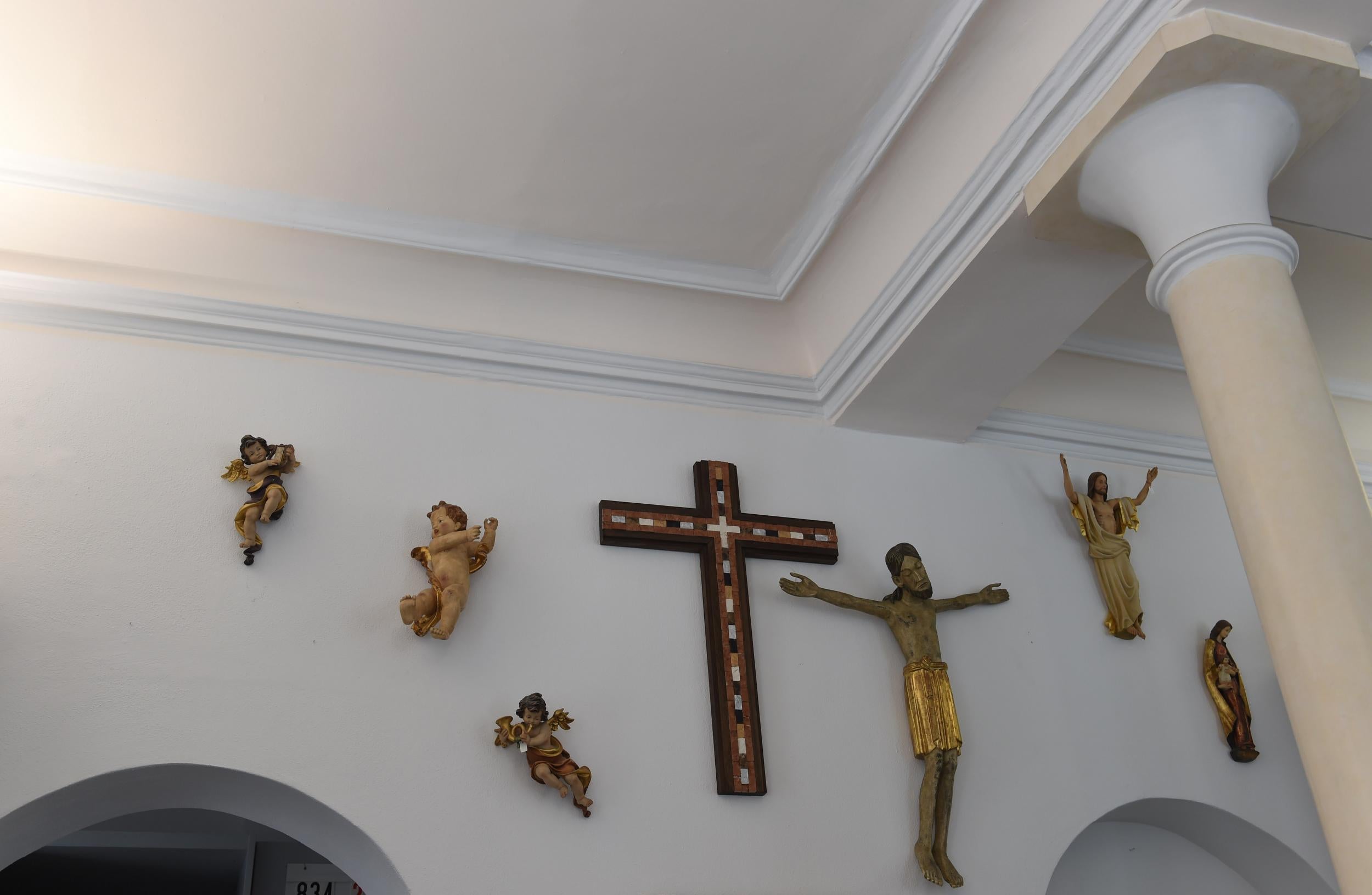Vatican 'supports' compulsory crosses in Bavarian public buildings, state's prime minister says
Premier points to 'fundamental benevolence’ towards type of move that has polarised German state

Your support helps us to tell the story
From reproductive rights to climate change to Big Tech, The Independent is on the ground when the story is developing. Whether it's investigating the financials of Elon Musk's pro-Trump PAC or producing our latest documentary, 'The A Word', which shines a light on the American women fighting for reproductive rights, we know how important it is to parse out the facts from the messaging.
At such a critical moment in US history, we need reporters on the ground. Your donation allows us to keep sending journalists to speak to both sides of the story.
The Independent is trusted by Americans across the entire political spectrum. And unlike many other quality news outlets, we choose not to lock Americans out of our reporting and analysis with paywalls. We believe quality journalism should be available to everyone, paid for by those who can afford it.
Your support makes all the difference.The Vatican is supportive of a new law in Bavaria forcing all public buildings to display a Christian cross to greet visitors, the state’s prime minister has claimed.
From yesterday, it became compulsory for reception areas in tax offices, police stations, schools, council offices and courts to have a crucifix on show – under legislation that has proven highly divisive in the German state.
Both Catholic and Protestant church leaders as well as academics have opposed the move, warning the Bavarian government about misappropriating the cross for political ends.
The debate has focused on the meaning of Bavarian identity and attitudes towards migrants in the conservative state following the arrival of more than a million mostly Muslim refugees to Germany in 2015.
Bavarian state premier Markus Söder met the Pope yesterday, the day the new legislation took effect – with timing that he insisted was a coincidence. The Frankfurter Allgemeine newspaper said Mr Soder said afterwards that the Vatican’s attitude was supportive.
“Söder did not talk to Francis about the so-called crucifixion, which came into force this Friday in Bavaria. However, subsequently the State Secretariat had expressed a ‘fundamental benevolence’ towards initiatives of a ‘Christian confession to the outside’ as well as the Bavarian care and family allowance,” the Frankfurter Allgemeine reported.
The Secretariat of State is responsible for general church affairs.
Bavaria is Germany’s second-most populous state, and three in four citizens are Christians. It has one of the highest densities of Catholics in Europe – half of all its people, while 19 per cent are Protestant and 4 per cent are Muslim.
Authorities say the new law is about culture, not religion. The decree reads: "A clearly visible cross must be placed in the entrance area of every service building to serve as a reminder of the historical and cultural influence of Bavaria."
A poll across Germany showed just 29 per cent of citizens supported the move but in Bavaria, more than half did so – 56 per cent. Among supporters of Mr Soder's political opponents, the Alternativ fur Deutschland, more than three-quarters – 77 per cent – approved.
However, several art colleges have rebelled, saying their campuses were diverse institutions, leading authorities to reportedly backtrack on the obligation for museums, theatres and universities, and saying now that a crucifix is only recommended.
A lack of specific instructions about sizes and placement means the crosses could be very small, so long as they are visible in the foyer.
Since chancellor Angela Merkel welcomed the influx of migrants into Germany in 2015 and 2016, the role of Islam in German society has been much debated.
Mr Söder and his party, the Christian Social Union (CSU), have been accused of using populist strategies to garner support ahead of state elections in October. The party’s absolute majority is under threat, with conservative voters shifting support to the right-wing AfD following the refugee crisis of 2015-2016.
The Kreuzpflicht - or "cross duty" - is seen as Mr Söder’s answer to the arrival of the mostly Muslim refugees.
But Cardinal Reinhard Marx, archbishop of Munich and president of the German Bishops' Conference, accused the premier of using it to foment "division, unrest and animosity". Thomas Sternberg, President of the Central Committee of German Catholics, said the crucifix should not be used "for election purposes".
In February, Bavaria banned full-face Islamic veils in schools, universities, polling stations and government offices.
Earlier this week Denmark banned the wearing of face veils in public, after the government argued veils were contrary to Danish values.
Join our commenting forum
Join thought-provoking conversations, follow other Independent readers and see their replies
Comments